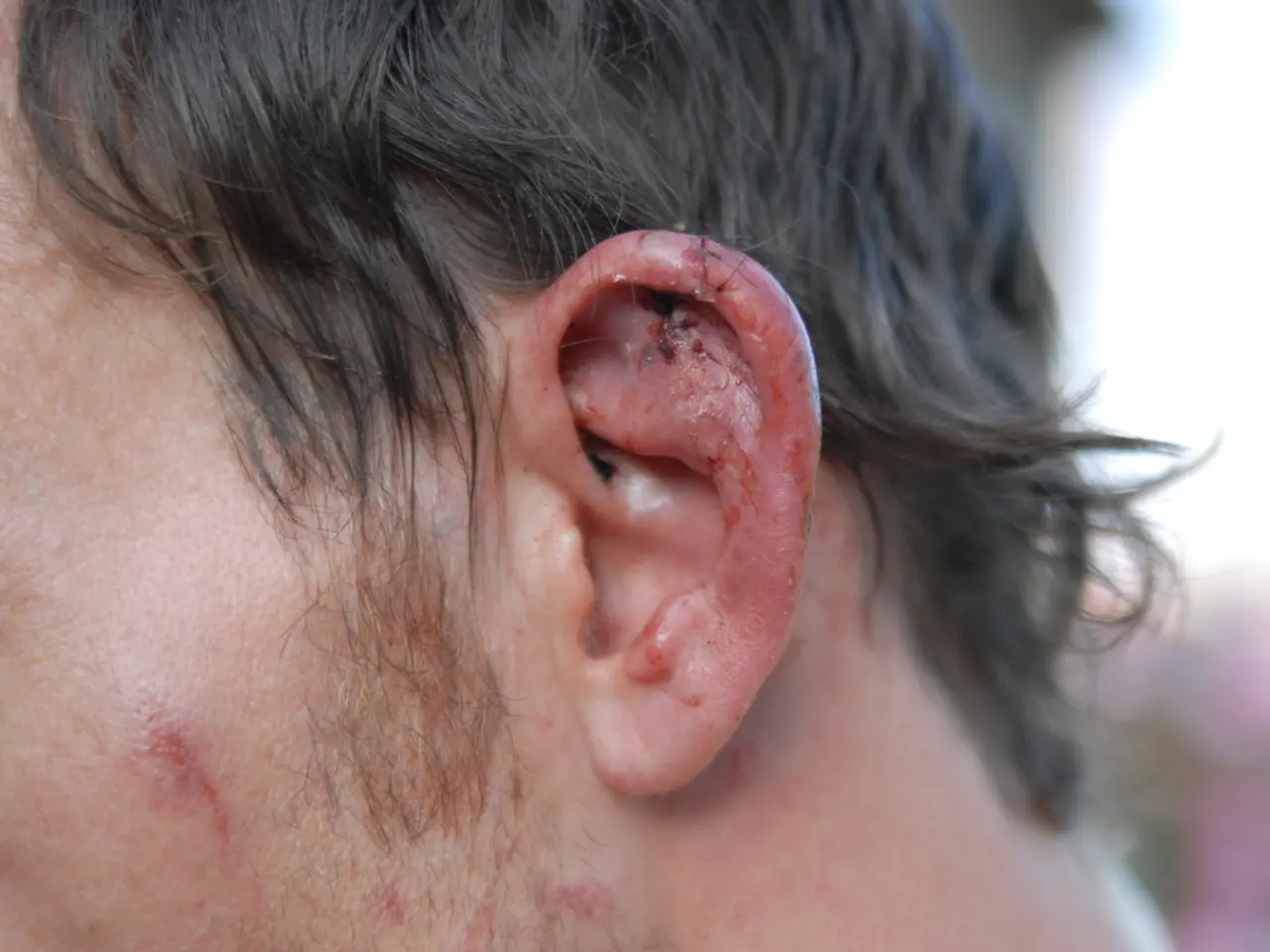Semen with blood: Root causes and medical solutions
Hematospermia, the presence of blood in the semen, can be a concerning issue for men. While it may be alarming, it's important to understand that the condition is often benign and self-limiting.
Common causes of hematospermia include trauma or medical procedures, infections and inflammation, benign prostatic hyperplasia (BPH), physical trauma, and frequent or vigorous masturbation. Trauma from medical interventions such as prostate biopsy or cystoscopy, injuries from activities like horseback riding or bicycling, and even strenuous sexual activity can lead to blood in the semen.
Infections and inflammation in the male reproductive tract, such as prostatitis or seminal vesiculitis, can also cause hematospermia. In some cases, the exact cause may remain undetermined by a doctor.
While hematospermia can be a sign of more serious conditions like tumors, this is rare. Repeated bouts of hematospermia may indicate a tumor, particularly prostate cancer, but such cases are relatively uncommon.
Symptoms that accompany hematospermia include the presence of visible blood or blood streaks in the semen, pain during ejaculation or urination, fever, and urinary problems if infection or inflammation is present.
Most cases of hematospermia are benign and resolve without treatment. However, if hematospermia persists for more than three weeks or is accompanied by pain, fever, or urinary symptoms, medical evaluation is recommended to rule out infections or other underlying causes. Treatment, when necessary, targets the underlying cause, whether it be antibiotics for infections, management of BPH or other structural issues, or anti-inflammatory therapies.
Factors that increase the risk of developing hematospermia include being over the age of 40, having a history of prostate issues, and having a family history of prostate disease. Infections, particularly in males under 40, can also cause blood in the semen, often related to urinary tract infections or sexually transmitted infections.
In some cases, a ruptured blood vessel may cause sudden bleeding that lasts for several minutes and then stops. Long periods of abstinence from sexual intercourse can sometimes lead to blood in the semen. Other less common causes of blood in the semen include HIV, AIDS, high blood pressure, hemophilia, leukemia, liver disease, an enlarged prostate, ejaculatory duct obstruction, infertility, and certain medications that cause bleeding.
If you experience blood in your semen, it's important to seek medical advice. Evaluation for hematospermia may include a digital rectal and prostate examination, urinalysis and urine culture, prostate-specific antigen blood test, semen analysis, direct urethral visualization with cystoscopy, prostate ultrasound imaging, prostate MRI imaging, and treatment for underlying conditions.
In summary, hematospermia is usually caused by trauma or inflammation, often resolves on its own, and only requires specific treatment if persistent or associated with other symptoms. Understanding the causes and seeking prompt medical attention can help alleviate concerns and ensure proper treatment.
- Ulcerative colitis, a type of inflammatory bowel disease, can possibly result in hematospermia.
- HIV and AIDS, sexually transmitted infections, can be less common causes of blood in the semen.
- Diabetes, high blood pressure, and liver disease are among the health conditions that may lead to hematospermia.
- Ankylosing spondylitis, a form of arthritis that primarily affects the spine, could potentially be linked to hematospermia under certain circumstances.
- Skin conditions such as psoriasis could theoretically have an indirect effect on hematospermia due to systemic inflammation.
- Lung cancer, like breast cancer, is a type of cancer that if metastasized, could potentially lead to hematospermia.
- Mental health disorders, such as stress or anxiety, might indirectly influence sexual health and potentially cause hematospermia.
- The health-and-wellness routine one adopts, including fitness-and-exercise regimens, can have an impact on overall sexual health and might affect the occurrence of hematospermia.
- Men struggling with sexual health issues, such as erectile dysfunction or premature ejaculation, might experience hematospermia due to vigorous sexual activity.
- Anticipating and addressing hematospermia early through predictive tests and evaluations can help reduce concerns and ensure proper treatment if necessary.
- Mens-health forums and resources, like those focused on skin care and sexual health, can provide valuable information regarding hematospermia, addressing common questions and concerns.




